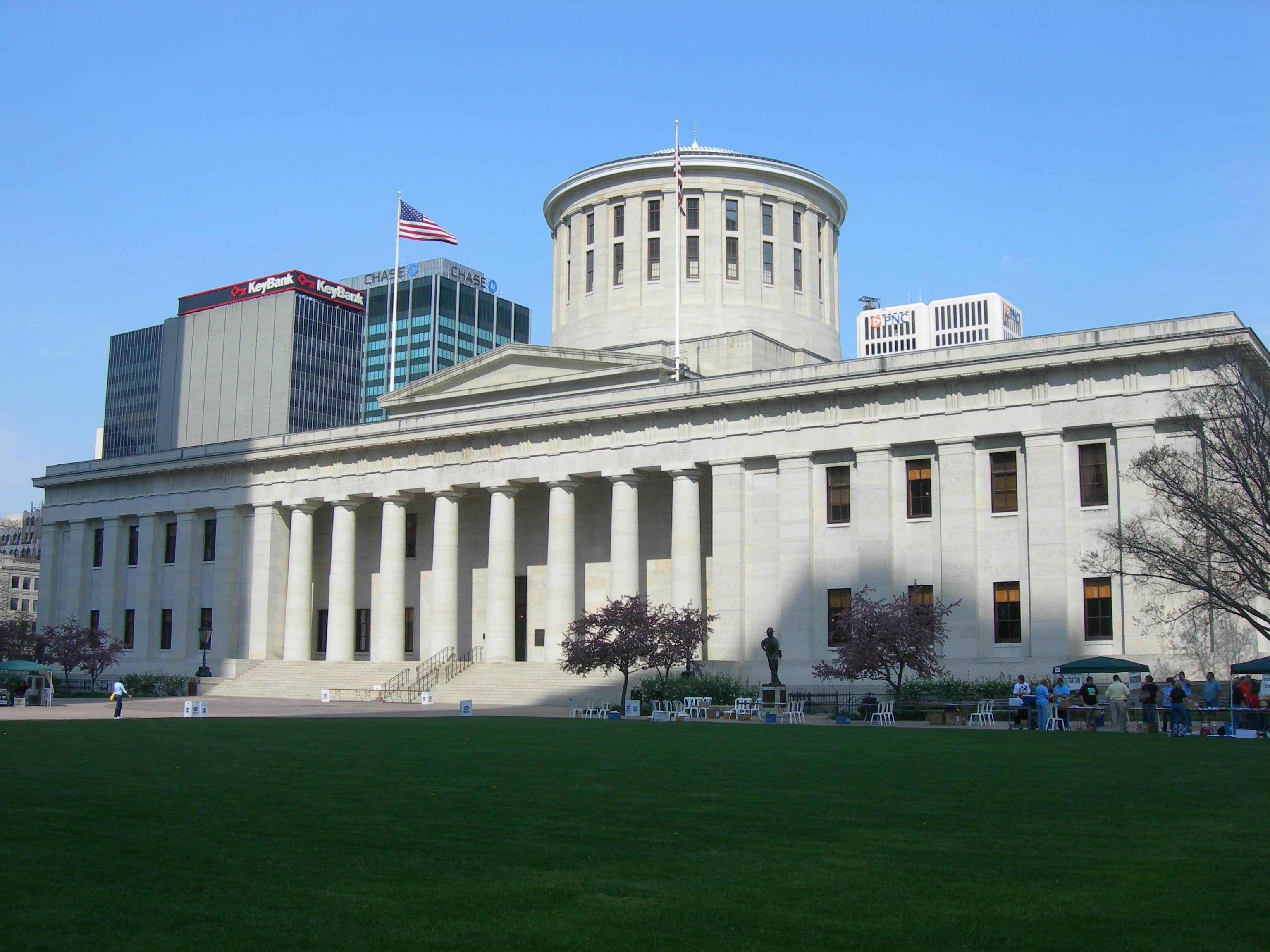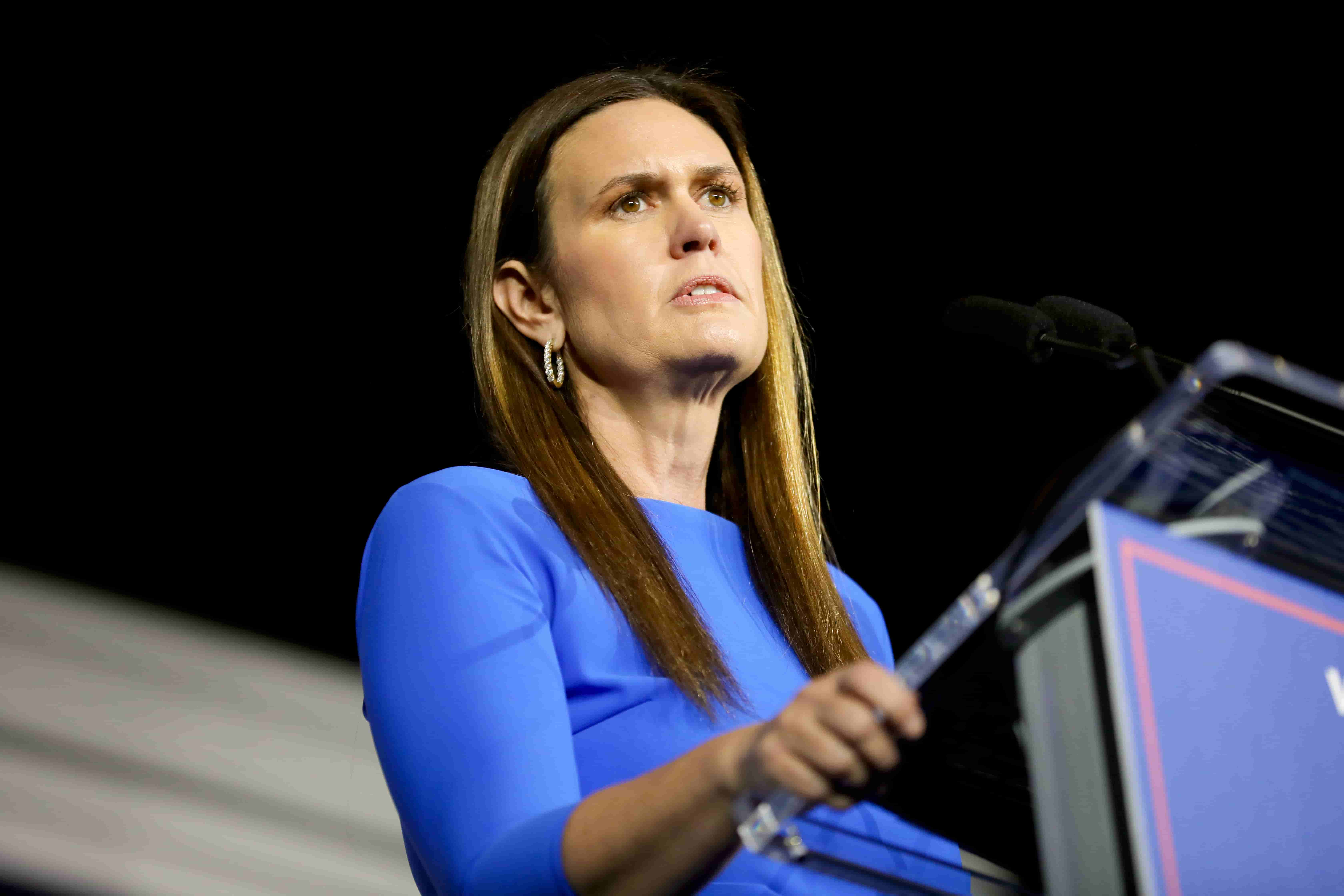Parents, Students, And Teachers Sue Over Florida “Don’t Say Gay” Law
Plaintiffs say law will unfairly censor LGBTQ youth and students with same-sex parents, violating their constitutional rights.

On Thursday, a group of Florida school-age students, parents of LGBTQ youth, and a teacher filed suit against a recent bill signed into law by Gov. Ron DeSantis that prohibits LGBTQ-related content or lessons in primary grade classrooms.
The lawsuit, filed in U.S. District Court for the Northern District of Florida on behalf of the pro-LGBTQ organizations Equality Florida and Family Equality and the other plaintiffs, argues that they face, and have already begun to suffer concrete harms due to the “Parental Rights in Education” law, which has dubbed by critics as the “Don’t Say Gay” law.
As written, the law in question bars classroom instruction on sexual orientation or gender identity in Florida classrooms from kindergarten through third grade, and in a manner that is not “age-appropriate” or “developmentally appropriate” in older grades.
But critics have expressed concerns that, in being enforced, teachers and school administrators — wary of being sued by litigious parents — will take harsher stances, preemptively banning LGBTQ content from secondary and high school classrooms, censoring student speech, removing books from libraries that reference different sexual orientations or gender identities, even if they are not essential to the plot, and prohibiting LGBTQ-identifying students (or students with LGBTQ parents) from forming clubs like Gender and Sexuality Alliances, also known as GSAs.
Specifically, the plaintiffs, who are represented by the legal firm of Kaplan Hecker & Fink LLP and the National Center for Lesbian Rights, argue that the law violates students’ right to due process and equal protection under the Fourteenth Amendment to the U.S. Constitution, their right to receive information and right to freedom of expression under the First Amendment, and Title IX of the Education Amendments Act of 1972, which prohibits sex-based discrimination in educational settings.
The lawsuit also argues the law is “overbroad,” meaning that even if the law could be interpreted as having a legitimate purpose, the way it would be implemented would be considered unconstitutional.
“This overbreadth has a chilling effect on the behavior and speech of students, including Plaintiffs M.A., Moricz, Doe, and Equality Florida, resulting in the self-censoring and intentional avoidance of a broad, sweeping category of protected speech. For example, due to the overbreadth of HB 1557, students like Plaintiffs M.A., Moricz, Doe, and Equality Florida are discouraged from identifying themselves as LGBTQ in school or from coming out as LGBTQ; from sharing experiences or views about LGBTQ issues, sexual orientation, or gender identity in school, as Plaintiffs M.A., Moricz, Doe, and Equality Florida currently do; and from asking questions about LGBTQ issues, sexual orientation, or gender identity in school, as Plaintiffs M.A., Moricz, Doe, and Equality Florida currently do, all of which infringes on their First Amendment rights,” the complaint reads.
The plaintiffs have asked the court to issue a preliminary injunction preventing Florida schools from attempting to enforce the law while it’s being challenged, a decision finding the law unconstitutional, a permanent injunction barring the state from attempting to enforce the law once it is ruled unconstitutional, an amount in damages, yet to be determined, and the cost of attorney’s fees incurred by plaintiffs in bringing the lawsuit.
The plaintiffs in the lawsuit claim that the efforts taken by schools to comply with the law, regardless of the text of the bill or the intent of its sponsors, will infringe on students’ constitutional rights. They claim the terms “age-appropriate” and “developmentally appropriate” are not clearly defined and invite “arbitrary and discriminatory enforcement” by teachers wishing to avoid lawsuits from oversensitive or conservative parents who view any LGBTQ-related content as inappropriate and will be empowered to sue school districts under the law.
“By design, HB 1557 constructs a statutory scheme in which any rational person who discusses or acknowledges any aspect of LGBTQ identity must fear running afoul of the law,” the plaintiffs’ lawyers said in a press release. “The effect of HB 1557 is thus to chill the rights of teachers, students, and school officials, who, like any rational person, will avoid the danger zone created by a state-mandated censorship code.”
Some of the plaintiffs say they’re already being impacted by the law. Zander Moricz, an 18-year-old senior at Pine View School in Osprey, Florida, says his teachers have warned him that they will no longer be able to have classroom discussions referencing LGBTQ content and will shy away from acknowledging his identity. Lindsay McClelland, the mother of plaintiff Jane Doe, a transgender fifth-grader, fears that teachers will use the law as justification for not protecting her daughter from being bullied or harassed at school.
Another plaintiff, a 17-year-old from Palmetto, Florida, known as “M.A.,” has already experienced his father severing the parent-child relationship after M.A., who lives with his mother and relatives, came out as gay. M.A. says that being able to talk about LGBTQ issues, and being involved with his school’s GSA, have been the factors that helped him become self-assured and comfortable with his identity, despite pushback from school administrators who initially rejected M.A.’s attempt to establish a GSA.
Several same-sex couples with school-age children have also sued, worrying about the law’s effect on their children. For example, Dan and Brent VanTice, two other plaintiffs and the parents of two first-graders, say their children have told them they are afraid they will not be able to talk about their family at school. Other parents in same-sex relationships worry the same thing type of censorship may be imposed on their family.
“One in four children with LGBTQ+ parents already report feeling unsafe in school and this harmful law will make thousands of children and families in Florida potentially even more vulnerable to bullying and mistreatment in the classroom,” Stacey Stevenson, the chief executive officer of plaintiff organization Family Equality, said in a statement. “Our families deserve to be treated equally under the law. We are nothing to be ashamed of, and our existence cannot be erased.”
A veteran middle-school English teacher who is part of the lawsuit says she has previously discussed issues related to the LGBTQ community, such as when explaining the relevance of LGBTQ identity and history in some of the literature and authors that she teaches. Other times, she says students have brought up discussions of LGBTQ issues organically, and she has engaged them in conversation about their thoughts and feelings on those issues. She now fears that her curriculum will be attacked, says she’s received no guidance from administrators about what she can and can’t discuss in the classroom, and worries that, by adhering to the law, her students will be deprived of a space to openly express themselves.
“Over time and continuing today, our nation has strived to make good on its promise that everyone is entitled to be treated with equal dignity under the law. That is true when it comes to LGBTQ Americans, who now have the constitutional right to identify openly as LGBTQ, to marry, and to form families with children,” Roberta Kaplan, the founding partner of Kaplan Hecker & Fink LLP, said in a statement. “With the passage of HB 1557, Florida has not only taken a giant step backwards, but it has done so at the expense of our children, the most vulnerable members of society. It is hard to imagine anything more offensive to our constitutional system than treating one group of school kids as second class based solely on who they are or who their parents are. This law cannot be allowed to stand.”
“This discriminatory law threatens the decades of progress we’ve made in creating safer schools for everyone,” Imani Rupert-Gordon, the executive director of the National Center for Lesbian Rights, said in a statement. “While this law will endanger all students, it will be particularly damaging to LGBTQ students and LGBTQ parents. We are filing this challenge only days after the bill was signed into law because the harms it is causing are already so incredibly clear. Every young person deserves to be safe at school and we will fight unconscionable laws like this until that is true for every student.”
Support Metro Weekly’s Journalism
These are challenging times for news organizations. And yet it’s crucial we stay active and provide vital resources and information to both our local readers and the world. So won’t you please take a moment and consider supporting Metro Weekly with a membership? For as little as $5 a month, you can help ensure Metro Weekly magazine and MetroWeekly.com remain free, viable resources as we provide the best, most diverse, culturally-resonant LGBTQ coverage in both the D.C. region and around the world. Memberships come with exclusive perks and discounts, your own personal digital delivery of each week’s magazine (and an archive), access to our Member's Lounge when it launches this fall, and exclusive members-only items like Metro Weekly Membership Mugs and Tote Bags! Check out all our membership levels here and please join us today!



























